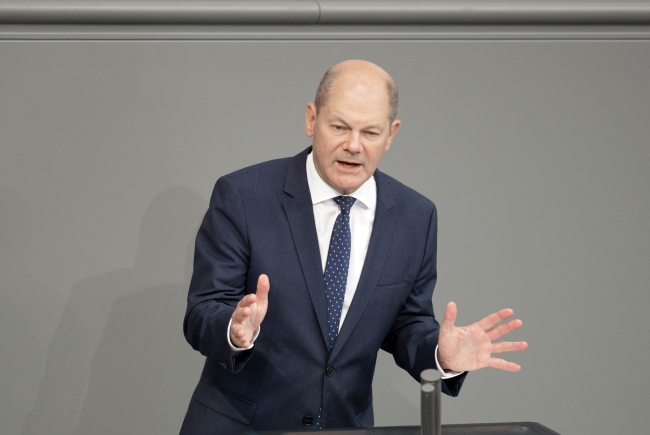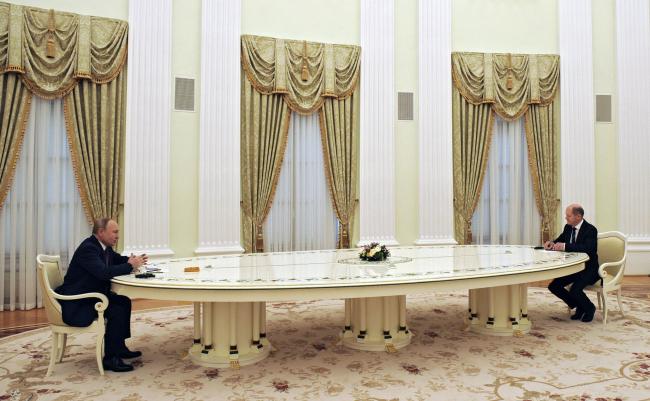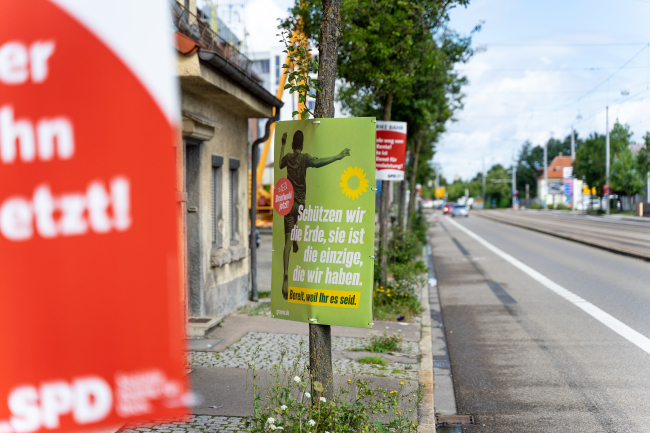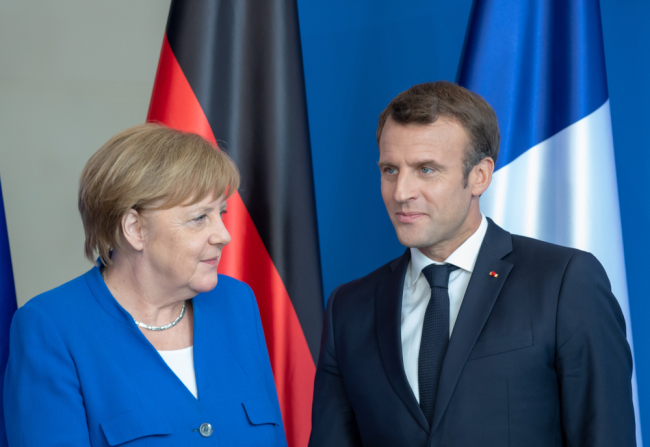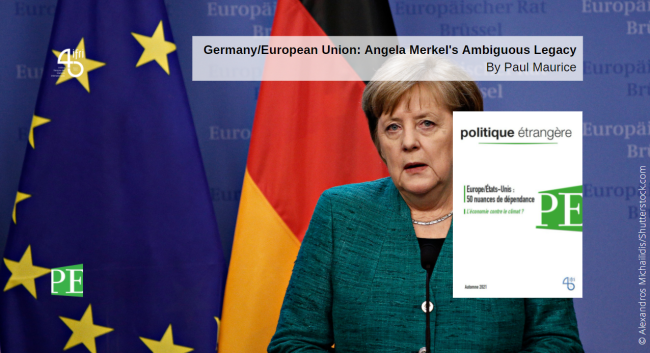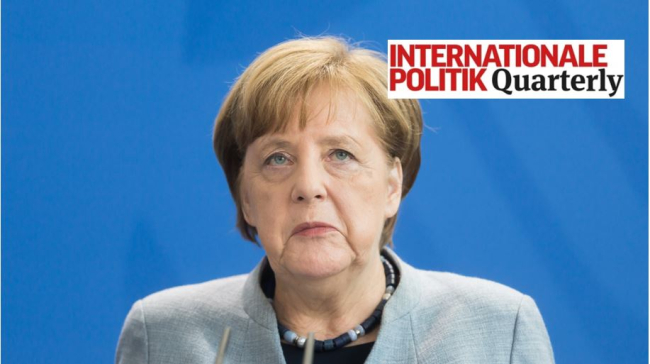Germany
An in-depth analysis of Germany's trajectory through its foreign and European policies, its relations with France, its economy and its domestic politics, offering a perspective on the country and its role in the world.
Related Subjects

The French Strategy of the Saarland. A German Federal State on the Way to a Living European Multilingualism
With the France Strategy, Saarland set out in 2014 to become an efficient multilingual German-French region within a generation.
The Paradigm Shift in German Security and Defence Policy After the Russian Invasion of Ukraine
The German government has long hesitated to take a position on the crisis between Russia and Ukraine. It has refused to question the planned commissioning of Nord Stream 2 and to supply Ukraine with weapons.
A “New Era”? Toward a Realignment of German Foreign Policy after the Russian Invasion of Ukraine
German Chancellor Olaf Scholz’s speech to the Bundestag on February 27, 2022, announced a new orientation in foreign policy and challenged the principles that had been the consensus in Germany for the past thirty years.
The Shock of Reality: The Traffic Light Coalition in the Russian-Ukrainian Crisis
The Russian-Ukrainian crisis puts to the test the cohesion of the new traffic light coalition, the authority of Chancellor Scholz and the ambition to adapt the post-Merkel German foreign policy.
What Perspectives for Europe? The Political Parties in Germany and European Integration
The grand coalition’s record on European policy is mixed. On budgetary issues, the CDU-CSU and SPD were able to implement the agreements in the coalition agreement, but on fundamental reforms of the European Union, only small steps were taken.
Franco-German Civil Society: Object and Actor of Bilateral Relations. Balance and Perspectives after the Signing of the Treaty of Aachen
The treaty signed by France and Germany in Aachen on January 22, 2019 highlights the role of civil society in bilateral cooperation and aims to contribute to "bringing societies [and citizens in both countries] closer together".
A Changing Germany: The Party System Tested in the 2021 German Federal Elections
The German federal elections of September 26, 2021 were marked by the departure of the outgoing chancellor, Angela Merkel, who was not seeking re-election. The scattering of the vote and the high volatility of voters have led to a redefinition of the landscape and geography of parties in Germany.
The Future of the Franco-German Tandem
At the heart of the European project, the Franco-German tandem provides impetus for further integration within the EU. However, Brussels is yet to decide which direction it wants to take, and the French and Germans still have to agree on their position with regards to economics, foreign affairs, and enlargement.
Germany/European Union: Angela Merkel’s Ambiguous Legacy
Angela Merkel is ending her fourth term as German Chancellor. Although she has made a number of statements demonstrating her commitment to the European project, her record in this area nevertheless appears to be mixed.
Advancing Europe: Green for Danger?
In France, the prospect of the Greens entering the German government this fall raises both hopes and fears.
German-Russian Relations: Balance Sheet since 2000 and Perspectives until 2025
The relationship between Germany and Russia, according to official portrayals in Berlin, is one of ‘strategic partnership’ supplemented by ‘modernisation partnership’. The closeness and at times demonstrative cordiality of the relations have given rise to suspicion about Germany being an advocate of Russian interests in Europe for the benefit of its economy but at the expense of Europe’s trans-Atlantic links.

France's Partner on a Pedestal: A View Driven by Pragmatism and Envy
This paper brings together contributions from a cross-section of EU member states and the Gallup World Poll survey on the question of how Germany is being viewed at this time of economic and political crisis.

The Rotating Presidency under the Lisbon Treaty: From Political Leader to Middle Manager?

The Institutionalization of the European Council Presidency : Institutional Dependence and Franco-German Inflections

Europe in electoral campaign : a cross-national analysis of the media
MALE Drones: Europe's Options?
European countries, lead by France, are expected to take a decision soon on the development and acquisition of MALE drones.
Their choices will be crucial not only for the preservation of European operational sovereignty in military terms but also to guarantee the future of the European aerospace industry.

Der Europäische Auswärtige Dienst. Deutsch-französische Initiativen für die europäische Diplomatie
Comparing Aid public policies in France and Germany
European Aid Ministers qualified 2008 as 'crucial for the development and the achievement of the Millennium Development Goals (MDO)'. So, the French presidency of the EU council devotes a part of its activities to Aid cooperation, mostly based on initiatives launched by Germany in 2007. In this article, both authors firstly compare Aid systems and their natures, and then explain why French and German approaches are often similar. Drawing up a panorama of these aid policies, also with common policies and projects, the authors would like to present common challenges that France and Germany are facing. Thus, they are looking for new leads to develop French-German cooperation in the field of Development.
Wortkrieg um das europäische Selbstverständnis : eine Vergleichsanalyse der Türkei-Debatte in Deutschland und Frankreich

L'Europe prochaine. Regards franco-allemands sur l'avenir de l'Union européenne
Support independent French research
Ifri, a foundation recognized as being of public utility, relies largely on private donors – companies and individuals – to guarantee its sustainability and intellectual independence. Through their funding, donors help maintain the Institute's position among the world's leading think tanks. By benefiting from an internationally recognized network and expertise, donors refine their understanding of geopolitical risk and its consequences on global politics and the economy. In 2025, Ifri supports more than 80 French and foreign companies and organizations.









